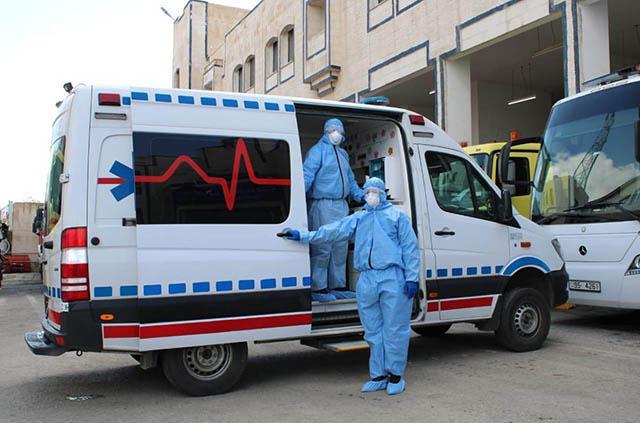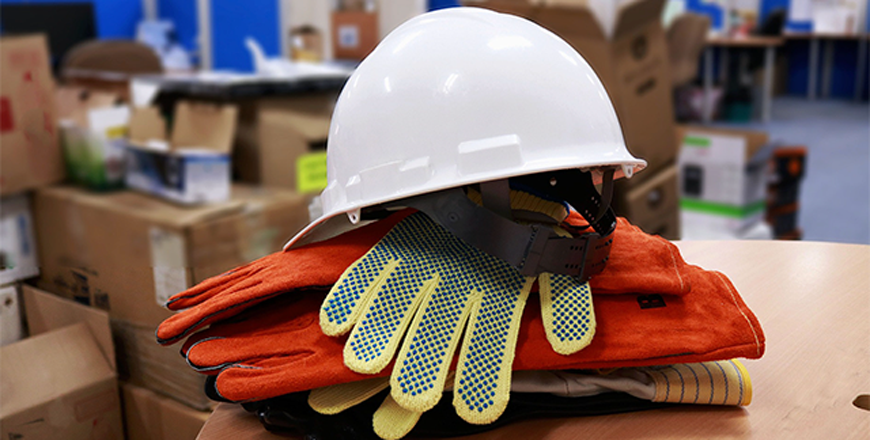You are here
JLW calls for boosting protection of healthcare workers
By Bahaa Al Deen Al Nawas - Apr 27,2020 - Last updated at Apr 27,2020

The Jordan Labour Watch on Monday issued a paper that highlights the importance of boosting protection of healthcare workers since they are the most vulnerable segment to infection of diseases in general, and the novel coronavirus in particular (File photo)
AMMAN – The Jordan Labour Watch (JLW) on Monday issued a paper that highlights the importance of boosting protection of healthcare workers since they are the most vulnerable segment to infection of diseases in general, and the novel coronavirus in particular.
In the paper, the JLW demanded boosting supervision on facilities and institutions that have gradually started working again to ensure they are committing to occupational health and safety standards and the guides the government produced recently on the spread of COVID-19.
On the current level of implementing health and safety standards, the paper revealed that there is a “big variation” in implementation.
“Implementation levels at most big facilities are good, whereas implementation at medium enterprises is at a medium state, while in most small enterprises implementation of health and safety standards is very weak,” according to the paper.
Generally, “the awareness of workers of the importance of implementing occupational health and safety standards is weak”, the paper said, noting that this is the case, even institutions that provide necessary preventive and protective materials for workers.
“This is because workers are not receiving sufficient and continuous training on using those necessities at the institutions they work at,” the paper added.
On work injuries in the organised labour sector, the paper cited the Social Security Corporation (SSC) statistics as showing a decrease from 13,049 incidents in 2017 to 9,860 incidents in 2018.
The manufacturing industry is “the most fragile” in implementing health and safety standards, as 33 per cent of work injuries happen in this sector, followed by the wholesale and retail sector at 16.81 per cent, the hotels and restaurants sector at 10.87 per cent and the construction sector at 7.8 per cent, according to the JLW paper.
The statistics have also shown that 147 workers died due to a work injury in 2018; including 10 women and 14 expatriate workers, according to the paper, which said that there are also undocumented cases for people who were not subscribed to the SSC.
“A number of facilities do not report most work incidents and injuries to avoid being subjugated to paying more for occupational health and safety to the SSC,” the paper also said.
The JLW highlighted the importance of having the government ratify the International Labour Organisation’s agreements on occupational health and safety in order to improve Jordanian standards, as there are 16 agreements on this matter, according to the paper.
The paper has also shown that there is harmony between Jordanian legislation on occupational health and safety and related international standards, noting that the Constitution in Article 23 highlights the importance of committing business facilities to health standards, in addition to the Labour, Public Health and SSC laws that cover many related standards as well.
The JLW, affiliated with the Phenix Centre for Economic Studies, issued the paper on the occasion of Workers' Memorial Day, which is celebrated on April 28.
Related Articles
AMMAN — A position paper issued by the Jordan Labour Watch (JLW) on Tuesday, showed that there are still many gaps in occupational health an
AMMAN — Jordan is in a dire need of promoting the application of occupational safety and health standards set forth in the national legislat
AMMAN — On World Day for Safety and Health at Work, Jordanian human rights and labour rights organisations call for increasing occupational

















